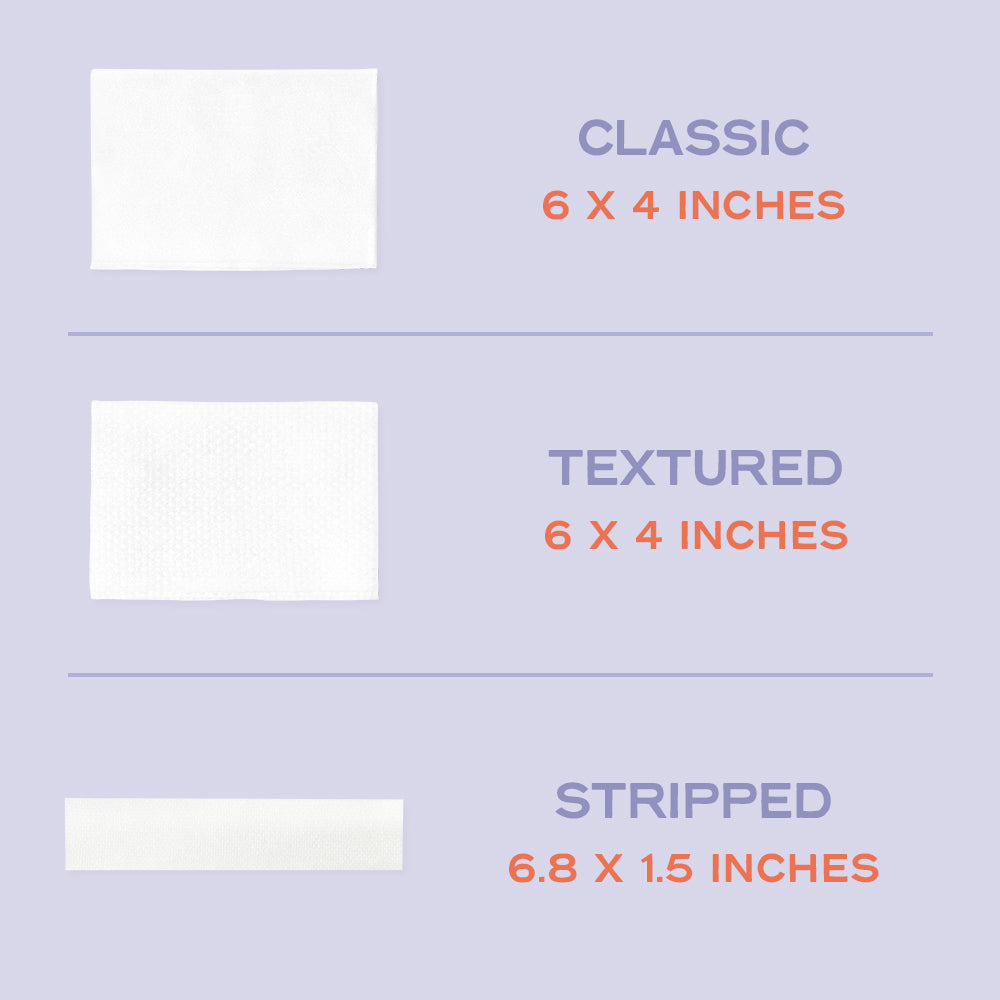Skincare for Sensitive Skin

The Solution: skincare with soft cotton pads
Whether your complexion is dry, oily, combination, or normal, there are a host of reasons you might end up including “sensitive” in the mix. And if you’re dealing with sensitive skin, you’ll know it! But don’t let your stinging skincare products and easily reddened, mottled complexion get you down — there are solutions at hand.
What causes sensitive skin
Though some people just have naturally sensitive skin, many of us are bringing the condition on ourselves. Your skin naturally repairs itself on a 28 day cycle, but too much scrubbing, applying a ton of different acids like AHAs and BHAs, and experimenting with an excess of different products can all stress your complexion and contribute to harming your skin barrier. By interfering with your natural healing processes and removing the stratum corneum (the top layer of the epidermis), you’ll find yourself with red patches, inflammation, and a generally unhappy face.
However, there’s good news. If your skin is suffering from stress due to a barrage of products, or it simply flares up easily, there’s a lot you can do to alleviate the problem.
(One thing to keep in mind: the symptoms of contact dermatitis can appear similar to the inflammation associated with sensitive skin. If you’re unsure which issue you’re dealing with, be sure to consult a dermatologist.)
How to care for sensitive skin
If you’ve been using a wide array of products, hit the pause button. Right now, the foundation of your skincare routine should consist primarily of a mild cleanser, moisturizer, and sun protection.
Unfortunately, it’s not enough to look for the word hypoallergenic on the label, because the term isn’t strictly regulated. Get ready to read ingredient lists.
Truly hypoallergenic products should be fragrance-free. Avoid essential oils, which sound natural but can cause inflammation and allergic reactions. Stay away from harsh detergents like sulfates, preservatives like parabens, acids including AHAs and BHAs (good for some people, but not anyone in the midst of repairing their skin barrier), rough scrubs containing pumice or walnut shell, and finally, alcohols (though cetyl alcohol and stearyl alcohol are okay). Ingredients usually touted as natural wonders, like vitamin C and retinol, are also best avoided, at least until the visible stress in your complexion recedes.
Furthermore, for the few items that remain in your sensitive skincare arsenal, seek out products stored in air-tight containers. With your skin already prone to stress and inflammation, it’s even more important to make sure anything you’re applying to your face in no way can become a breeding ground for bacteria.
But hey, it’s not all bad news. Since your complexion is better off with fewer products, not more, while you’re rebuilding your skin barrier, you’ll also be saving money.
How cotton pads support skincare for sensitive skin
And even with a pared down, soothing skincare routine, you can still pamper yourself. In fact, you should! One great solution to de-stress your face is to do a DIY mask with soft, natural cotton pads. We’re partial to our own White Rabbit NAKED COTTON Stripped pads, which are 100% cotton (no synthetics! your face has been through enough!), extremely gentle, and woven from cotton grown without pesticides.
Whether you’re doing a DIY mask with our NAKED COTTON Stripped or just want to swipe on something soothing quickly in the a.m. with NAKED COTTON Classic cotton pads, again, it’s all about the right hypoallergenic ingredients. Look for toners, mists, or serums with strengthening panthenol (vitamin B5), antioxidant tocopherol (vitamin E), and ceramides, which are vital to healthy skin barrier function. While you’re focusing mainly on cleansing, moisturizing, and SPF, this is the extra layer of care you can turn to help rebuild your stratum corneum. And by applying the treatment with the softest, safest cotton pads around, your face should be back to normal in no time.
Finally, with your gentle, hypoallergenic skincare squared away, don’t forget about lifestyle changes. If you really want to soothe sensitive skin, it’s key to eat a balanced diet, strive for at least seven hours of sleep a night, stay hydrated, and avoid alcohol and cigarette smoke. Then your skin can truly relax.

